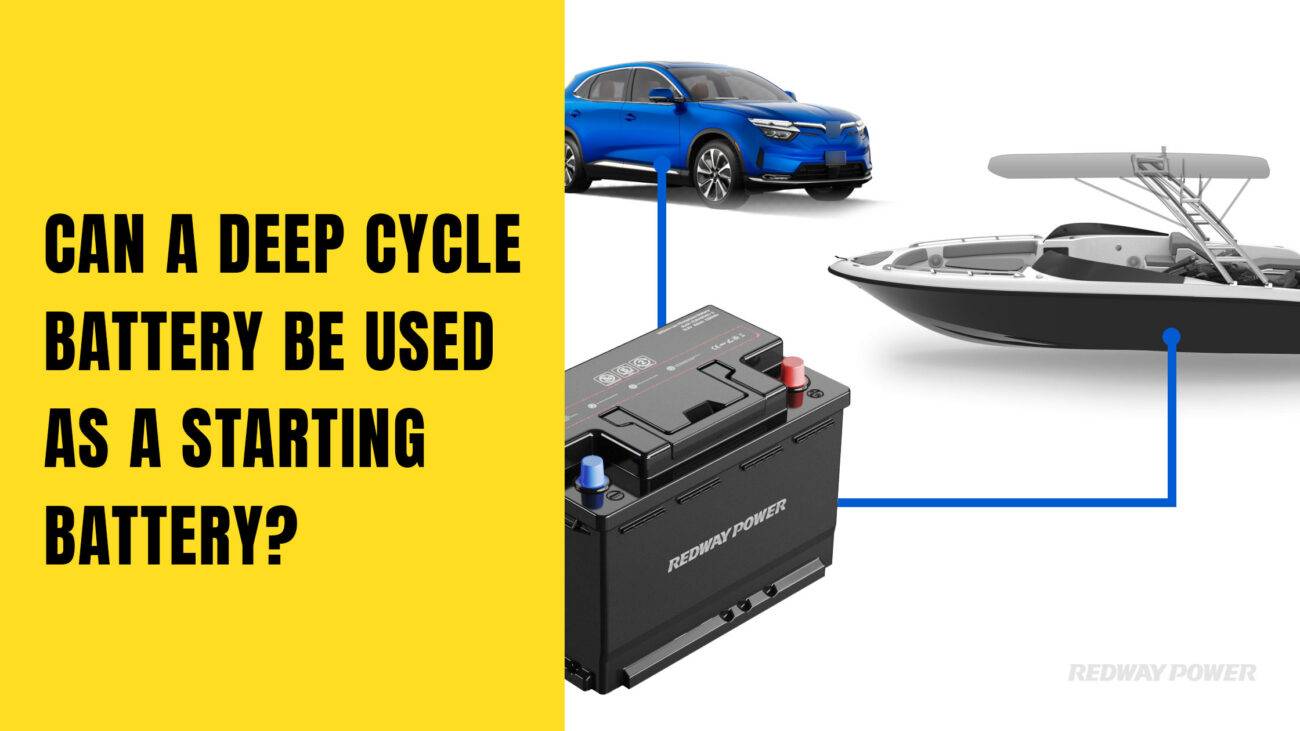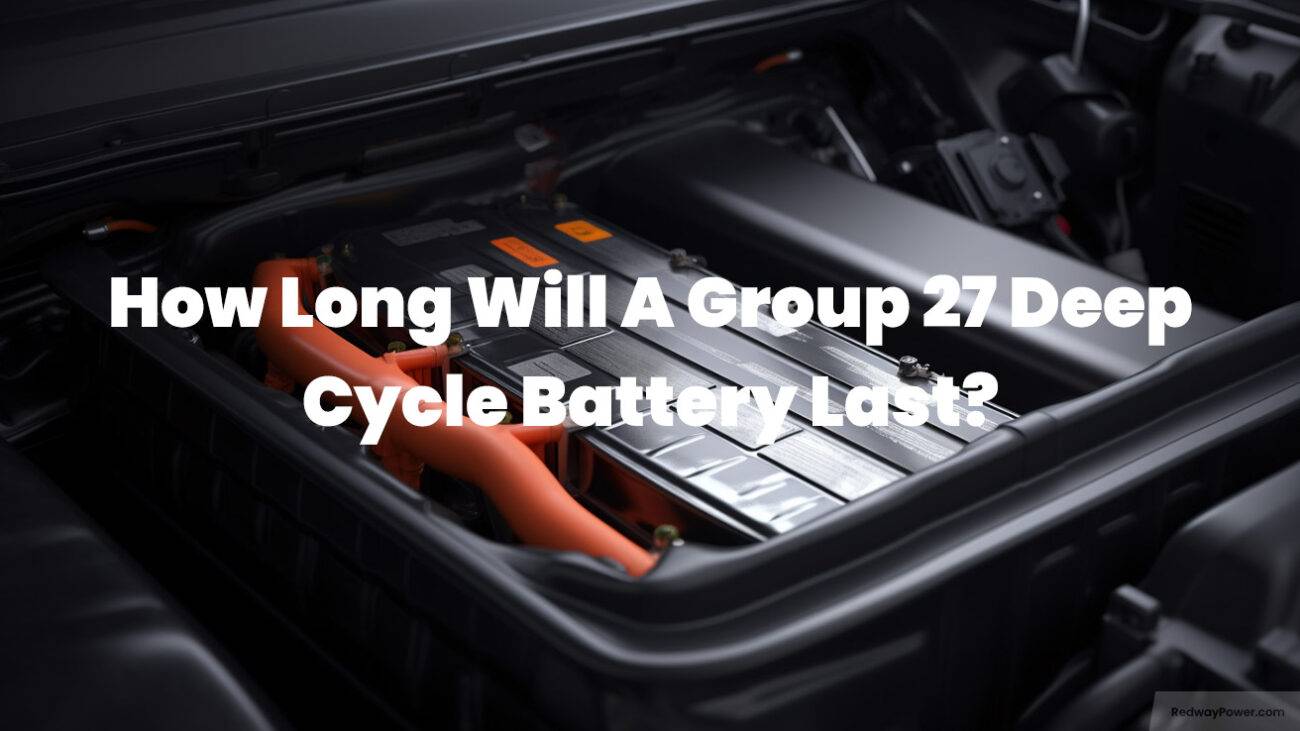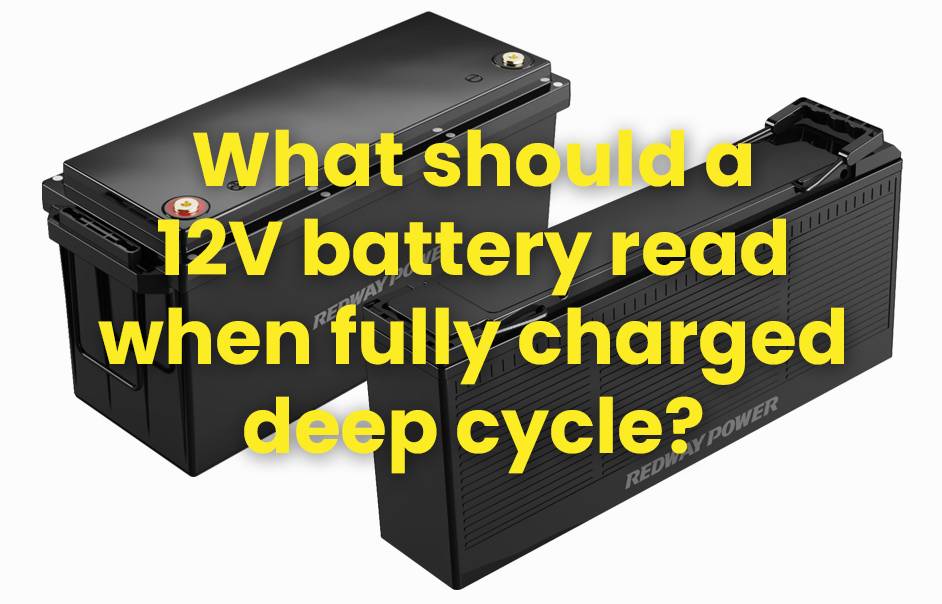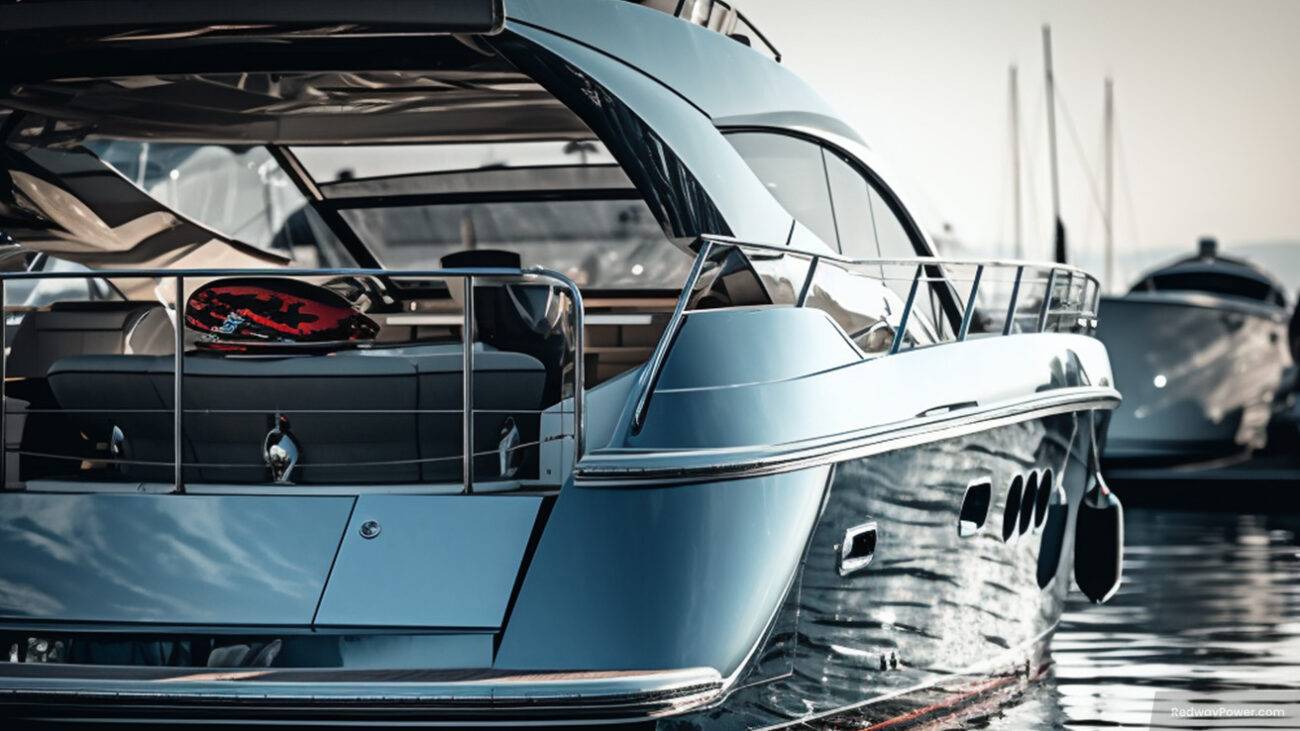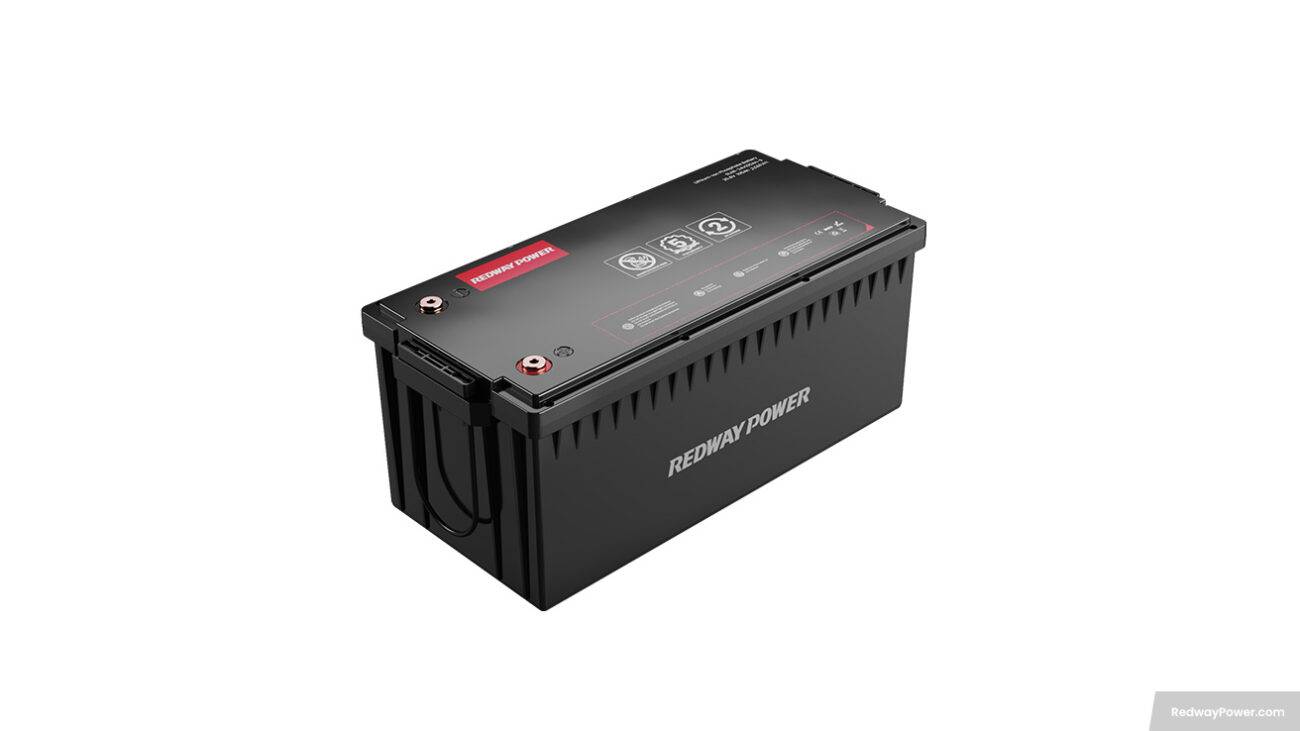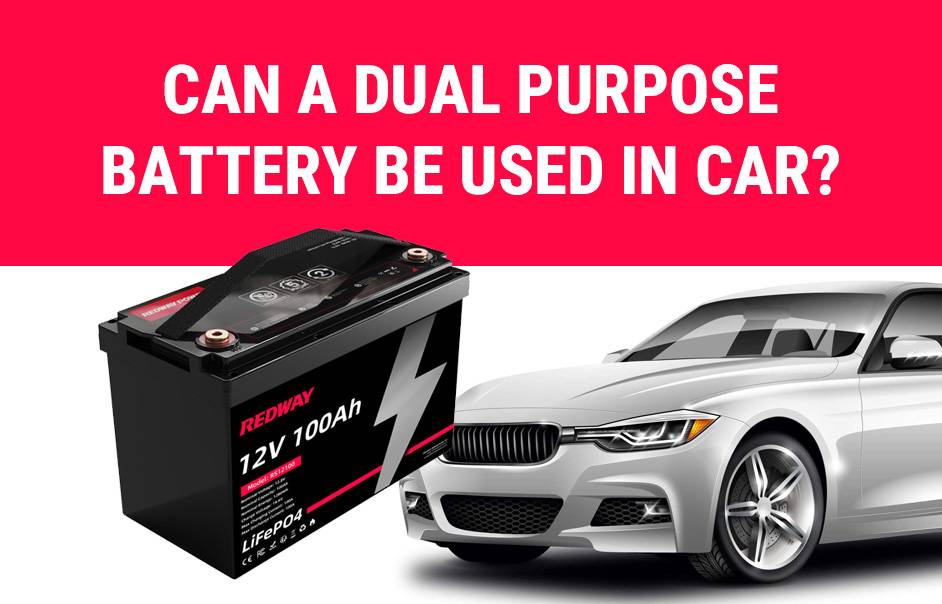Powering our devices and vehicles with batteries has become a way of life. From smartphones to cars, batteries play an essential role in keeping us connected and on the move. But with so many different types of batteries available, it’s important to understand their unique characteristics and applications.
In this blog post, we’ll be diving into the world of dual purpose and deep cycle batteries. You may have heard these terms before but wondered if they are one and the same or if there are any significant differences between them. Well, wonder no more! We’re here to shed some light on this topic and help you make informed decisions when it comes to choosing the right battery for your needs.
So grab a cuppa, sit back, and let’s dive into the fascinating world of dual purpose vs deep cycle batteries!
Understanding Different Types of Batteries
Batteries come in all shapes and sizes, each designed for specific purposes. Understanding the different types of batteries is crucial to ensure you’re using the right one for your needs.
First up, we have primary batteries. These are your everyday disposable batteries that power devices like remote controls and flashlights. They provide a reliable source of energy but cannot be recharged.
On the other hand, we have secondary batteries, also known as rechargeable batteries. These include lithium-ion (Li-ion) batteries commonly found in smartphones and laptops, as well as lead-acid batteries used in vehicles. Rechargeable batteries can be reused multiple times by simply plugging them into a power source.
Now let’s focus on dual purpose and deep cycle batteries specifically. Dual purpose batteries are designed to handle both starting (cranking) tasks and providing continuous power (deep cycling). They are commonly used in marine applications where the battery needs to start an engine while also powering onboard accessories like lights or radios.
Deep cycle batteries, on the other hand, are built to provide sustained power over longer periods without needing frequent recharging. They excel at delivering steady current over extended periods and are ideal for applications such as golf carts or renewable energy systems.
Understanding these distinctions between battery types allows you to make informed decisions based on your specific requirements. Whether it’s for personal electronics or larger-scale projects, choosing the right battery will ensure optimal performance and longevity from your devices.
Dual Purpose Batteries: Definition and Uses
Dual Purpose Batteries: Definition and Uses
When it comes to powering vehicles, dual purpose batteries have become a popular choice. But what exactly are they? In simple terms, dual purpose batteries are designed to provide both starting power and deep cycling capabilities.
Starting power refers to the burst of energy needed when you turn on your vehicle’s engine. Deep cycling, on the other hand, involves discharging the battery at a slower rate over an extended period of time. This makes dual purpose batteries ideal for marine applications or recreational vehicles that require both quick bursts of power and sustained energy.
One common use for dual purpose batteries is in boats. They can efficiently start the engine while also providing enough power to run various electronics on board such as lights, radios, and fish finders. Similarly, if you own an RV or camper van, a dual purpose battery would be able to handle the demands of starting the vehicle’s engine while also supporting appliances like refrigerators or air conditioning units during camping trips.
So why choose a dual-purpose battery over other alternatives? Well, their versatility is one major advantage. With these batteries, you don’t need separate ones for starting your vehicle’s engine and powering accessories; it can all be done with just one battery! This not only saves space but also simplifies maintenance since you only have to deal with one unit.
However, there are some drawbacks too. Dual-purpose batteries may not perform as well in extreme conditions compared to specialized options like deep cycle or cranking batteries. Additionally, if you frequently discharge your battery deeply (below 50%) or subject it to heavy loads without recharging properly afterwards, its overall lifespan could be reduced.
In conclusion,
Dual purpose batteries offer convenience by combining starting power with deep cycling capabilities in a single unit. While they may not excel in extreme conditions or high-demand situations compared to specialized options like deep cycle batteries , they remain versatile choices for many applications including boating and RVing. When choosing between dual purpose and deep cycle batteries, consider your specific
Deep Cycle Batteries: Definition and Uses
Deep cycle batteries are a type of battery that is designed to provide sustained power over an extended period of time. Unlike traditional car batteries, which are designed to deliver short bursts of high energy for starting the engine, deep cycle batteries are built to handle continuous discharge and recharge cycles.
These batteries are commonly used in applications where a reliable and long-lasting power source is required. For example, they are often used in recreational vehicles (RVs) and boats to provide power for lighting, appliances, and other onboard systems. They can also be found in renewable energy systems such as solar or wind power setups.
One key characteristic of deep cycle batteries is their ability to be discharged deeply without causing significant damage or reducing their overall lifespan. This makes them ideal for situations where they need to be frequently discharged and recharged, such as off-grid living or backup power solutions.
Compared to dual purpose batteries, deep cycle batteries typically have a lower cranking amp capacity but offer higher reserve capacity. This means that while they may not excel at providing sudden bursts of high energy like dual purpose batteries do, they can consistently deliver steady power over a longer period of time.
When considering whether a deep cycle battery is right for your needs, it’s important to factor in the specific requirements of your application. Consider factors such as the amount of power you will need on a regular basis, how frequently you will be discharging and recharging the battery, and any space constraints you may have.
In conclusion
Deep cycle batteries are specifically designed for applications that require sustained power over an extended period of time. With their ability to handle frequent discharge-recharge cycles without significant damage or reduced lifespan, these batteries prove valuable in various settings such as RVs and renewable energy systems. While not excelling at delivering sudden bursts like dual-purpose alternatives do, deep-cycle options provide consistent steady power output which make them suitable for many practical scenarios
Comparing Dual Purpose and Deep Cycle Batteries
Comparing Dual Purpose and Deep Cycle Batteries
When it comes to batteries, there are various types available in the market, each designed for specific purposes. Two popular options are dual purpose batteries and deep cycle batteries. While they may seem similar at first glance, there are key differences between these two battery types.
Dual purpose batteries are engineered to provide both starting power and deep cycling capabilities. This means that they can be used to start an engine as well as power accessories like lights or refrigerators when the engine is not running. On the other hand, deep cycle batteries are specifically built to deliver a steady amount of power over an extended period without being recharged frequently.
One major difference between dual purpose and deep cycle batteries lies in their construction. Dual purpose batteries typically have thinner plates compared to deep cycle ones. Thicker plates allow deep cycle batteries to withstand repeated discharges better than dual-purpose counterparts.
In terms of lifespan, deep cycle batteries generally outlast dual-purpose ones due to their robust design. However, this comes at a higher cost since deep-cycle variants tend to be more expensive upfront.
Considering usage scenarios is crucial when deciding between these two battery types. If you need a versatile option that can handle both starting tasks and accessory powering efficiently, then a dual-purpose battery might suit your needs perfectly. However, if you require long-lasting power for applications such as marine use or renewable energy systems where frequent recharging is not feasible or desired, then investing in a reliable deep-cycle battery could be the wiser choice.
Choosing between a dual-purpose or deep-cycle battery depends on your specific requirements and budget constraints. It’s essential to evaluate factors like longevity expectations, application demands, charging frequency availability before making an informed decision about which type of battery will best serve your needs!
Pros and Cons of Dual Purpose Batteries
Pros and Cons of Dual Purpose Batteries
Dual purpose batteries are a popular choice for many applications because they offer the benefits of both starting and deep cycle power. Here are some pros and cons to consider when it comes to dual purpose batteries.
One major advantage of dual purpose batteries is their versatility. They can provide the high cranking power needed to start an engine, as well as the sustained power required for running accessories like lights or a sound system. This makes them ideal for boats, RVs, and other vehicles that require both starting capability and deep cycling ability.
Another pro is that dual purpose batteries tend to be more compact than separate starting and deep cycle batteries. This means they take up less space in your vehicle or storage area, which can be especially important if you have limited room.
However, one downside of dual purpose batteries is that they may not perform as well in extreme conditions compared to dedicated starting or deep cycle batteries. For example, if you frequently use heavy electrical loads or discharge the battery deeply on a regular basis, a dedicated deep cycle battery might be a better option.
Additionally, while dual purpose batteries offer combined functionality, they may not excel in either starting or cycling capabilities compared to specialized counterparts. If you have specific requirements for either task – such as needing maximum cranking power for cold weather starts or extended runtime for off-grid applications – it’s worth considering dedicated options instead.
Dual purpose batteries offer convenience by combining starting and cycling capabilities into one unit. They are versatile and save space but may not perform optimally under extreme conditions or specific demands that require specialized performance from separate starter or deep cycle battery types.
Pros and Cons of Deep Cycle Batteries
Pros and Cons of Deep Cycle Batteries
Deep cycle batteries have several advantages that make them a popular choice for certain applications. One of the biggest advantages is their ability to provide a consistent level of power over an extended period. This makes them ideal for use in applications where a steady source of power is needed, such as in renewable energy systems or as backup power for homes.
Another advantage is their long lifespan compared to other battery types. Deep cycle batteries are designed to be discharged and recharged repeatedly without significantly affecting their performance or capacity. This means they can last much longer than other battery types, making them more cost-effective in the long run.
Additionally, deep cycle batteries are known for their durability. They are built with thicker plates and stronger construction materials, allowing them to withstand harsh conditions and frequent cycling without damage. This makes them suitable for use in marine environments, RVs, and off-grid solar systems.
Despite these benefits, there are also some drawbacks to consider when it comes to deep cycle batteries. One major disadvantage is their higher initial cost compared to other battery types. Due to their specialized design and construction, deep cycle batteries tend to be more expensive upfront.
Furthermore, deep cycle batteries require regular maintenance to ensure optimal performance and longevity. This includes monitoring water levels if using flooded lead-acid batteries or performing periodic equalization charges depending on the specific type of battery used.
While deep cycle batteries excel at providing sustained power output over time, they may not be suitable for applications that require high bursts of energy or quick charging times. If you need rapid charge/discharge capabilities or have devices that demand high peak currents (such as electric vehicles), alternative battery options may be more appropriate.
Deep cycle batteries offer reliable and long-lasting power solutions but come with a higher price tag and maintenance requirements than other battery types. Considering your specific needs and evaluating the trade-offs will help you determine if a deep cycle battery is the right choice for your application.
Factors to Consider When Choosing Between Dual Purpose and Deep Cycle
Factors to Consider When Choosing Between Dual Purpose and Deep Cycle
When it comes to choosing between dual purpose batteries and deep cycle batteries, there are a few key factors that you should consider. These factors will help you determine which type of battery is best suited for your specific needs.
1. Power Requirements: Consider the amount of power you need for your application. If you require high starting power as well as long-lasting energy storage, a dual purpose battery might be the best option. On the other hand, if your primary concern is long-term energy storage and cycling capabilities, a deep cycle battery would be more suitable.
2. Usage Patterns: Think about how frequently and extensively you will use your battery. If you plan to use it intermittently or infrequently, a dual purpose battery may suffice. However, if you anticipate continuous or heavy usage over an extended period of time, a deep cycle battery would be more reliable.
3. Durability: Assess the durability requirements of your application. Dual purpose batteries are generally less durable than deep cycle batteries because they are designed to handle both starting and cycling functions. If durability is crucial in your situation, opting for a deep cycle battery would be wise.
4. Charging Methods: Consider how easily accessible charging methods are for your intended use case. Dual purpose batteries can typically be charged using standard automotive chargers or alternators while driving on the road but might not work with certain charging systems found in recreational vehicles or boats that have dedicated charging systems designed specifically for deep cycle batteries.
5.
Reliability vs Cost: Evaluate whether reliability outweighs cost considerations in your decision-making process? While both types of batteries serve their purposes effectively, dual-purpose batteries tend to offer lower upfront costs compared to deeper-cycle ones; however this cost-saving comes at some expense regarding overall performance and longevity.
By taking these factors into account when making choosing between dual-purpose and deep-cycle batteries ensures that you make an informed decision tailored to your specific needs. Remember, there is no one-size-fits-all answer

